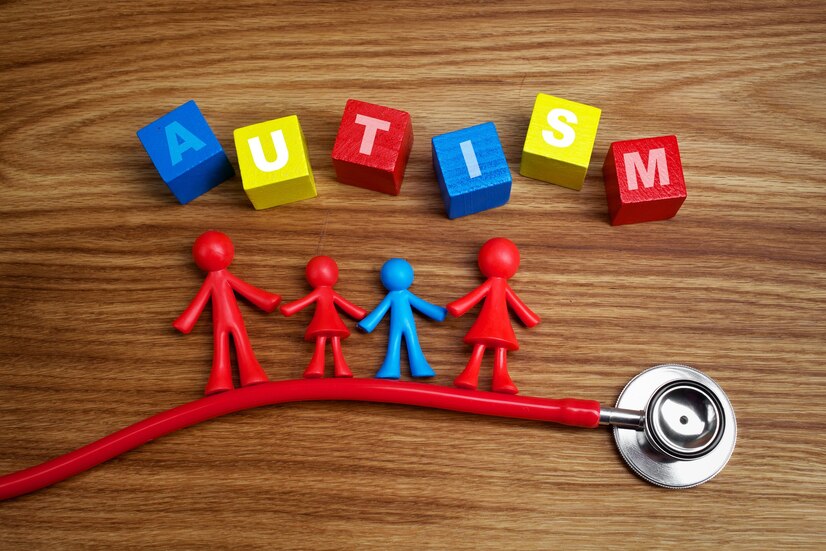The Social Determinants Of Health (Sdoh): Why They Matter To Improving Health Outcomes
6 Mins Read
Published on: 22 March 2023
Last Updated on: 14 May 2024

toc impalement
- 18 years of differences in life expectancy between high-low income countries.
- In 2016, almost 15 million died of NCD in low- and middle-class families.
- Under-r mortality rate is higher in Africa than in Europe.
While everyone deserves the same quality of life, not everyone is fortunate to be born in a rich country. These stats show you clearly how. If you want to learn more about these stats, know more here.
These numbers show how unfair these situations are and are still unavoidable. Many of these healthcare differences are caused by the decision-making process, social norms, policies, and structures at every societal level.
Today, in this article, we will discuss everything about SDOH and the elements that create these differences.
What Is The Meaning Of Social Determinants Of Health?
Social determinants of health refer to the social and economic conditions and factors that shape the health outcomes of individuals and communities. These determinants are shaped by the global, national, and local distribution of money, power, and resources, which are influenced by social policies and political systems.
Social determinants of health include income, education, housing, employment, social support, and access to healthcare. These factors can impact health outcomes by influencing behavior, access to resources, and exposure to risk factors. For example, lower-income individuals may have limited access to healthy food options, safe housing, and quality healthcare, which can contribute to poorer health outcomes.
Addressing social determinants of health is essential to promoting health equity and reducing health disparities. This requires a comprehensive approach that improves living and working conditions, addresses systemic discrimination and bias, and ensures equitable access to resources and opportunities. By addressing social determinants of health, we can help create healthier and more equitable communities for all individuals.
Why Does Sdoh Matter To Improving Health?
Social determinants of health (SDOH) matter to improving health because they can significantly impact health outcomes and contribute to health inequities. Addressing SDOH is essential to promoting health equity and reducing health disparities.
Factors such as income, education, housing, employment, and access to healthcare can all impact health outcomes. For example, lower-income individuals may have limited access to healthy food options, safe housing, and quality healthcare, which can contribute to poorer health outcomes.
Additionally, social determinants of health can have an intergenerational impact, meaning that one generation’s health outcomes can affect future generations’ health outcomes. For example, a mother’s health status during pregnancy can impact the health outcomes of her child.
Addressing social determinants of health requires a comprehensive approach that involves improving living and working conditions, addressing systemic discrimination and bias, and ensuring equitable access to resources and opportunities. By addressing social determinants of health, we can help create healthier and more equitable communities for all individuals.
Addressing social determinants of health is essential to promoting health equity and reducing health disparities. By improving social and economic conditions, we can help ensure that everyone has the opportunity to achieve their best possible health.
What Are Social Determinants Of Health?
Social determinants of health (SDOH) are the social and economic factors influencing health outcomes and contributing to health disparities among individuals and communities. SDOH includes various factors such as income, education, housing, employment, social support, access to healthcare, and environmental conditions.
Quality Health Care
Quality healthcare refers to healthcare services that are safe, effective, timely, patient-centered, equitable, and efficient. It includes various services, including preventive care, primary care, specialty care, and hospital care.
Safe healthcare refers to care that minimizes the risk of patient harm from medical errors, infections, or other adverse events. Effective healthcare refers to evidence-based care that results in positive health outcomes for patients. Timely healthcare refers to care that is provided in a timely manner without unnecessary delays.
Patient-centered healthcare refers to care that is responsive to patient’s preferences, needs, and values and involves shared decision-making between patients and healthcare providers. Equitable health care refers to care provided without discrimination or bias and considers the social and economic factors that may impact the health outcomes of different patient populations.
Efficient healthcare refers to care provided cost-effectively without unnecessary waste or duplication of services. Quality healthcare is essential for promoting positive health outcomes and reducing healthcare disparities among patient populations. It requires a commitment to continuous quality improvement and evidence-based practices and technologies.
Economic Stability
Economic stability refers to the state of a country’s economy with a steady and predictable growth rate, low inflation, and low unemployment. It is essential for the well-being of individuals, businesses, and communities as it provides a foundation for sustainable economic growth and development.
Economic stability is important for individuals because it provides opportunities for employment, income growth, and access to essential goods and services. Stable economic conditions can help to reduce poverty, improve social mobility, and promote economic inclusion.
For businesses, economic stability provides a predictable and supportive environment for investment, growth, and innovation. Stable economic conditions can help to increase consumer confidence, promote market competition, and facilitate access to financing and capital.
For communities, economic stability can help to promote social cohesion and reduce inequalities. It can provide public services and infrastructure resources, promote civic engagement, and support community development.
Quality Education
Quality education refers to effective, inclusive, equitable, and relevant education. It provides students with the knowledge, skills, and attitudes they need to be successful in their personal and professional lives and contribute to their communities and society.
Effective education promotes deep learning, critical thinking, and problem-solving skills. It allows students to apply their learning in real-world contexts and develop their creativity, communication, and collaboration skills.
Inclusive education ensures that all students have access to education, regardless of their background or abilities. It recognizes and values diversity and promotes respect and understanding among students and teachers.
Equitable education provides equal opportunities for all students to learn and succeed, regardless of socioeconomic status, gender, ethnicity, or other factors. It recognizes and addresses the barriers some students may face in accessing education and provides support and resources to help them succeed.
Relevant education is one that is responsive to the needs of students, their communities, and society as a whole. It provides students with the knowledge and skills they need to navigate and contribute to the changing world around them and address our social, economic, and environmental challenges.
Quality education is essential for promoting social and economic development, reducing inequality, and achieving sustainable development. It requires a commitment to continuous improvement, innovation, and collaboration among educators, students, parents, and communities.
Community Environment
The community environment refers to the physical and social surroundings in which individuals live, work, and interact with others. It includes the natural environment, such as air, water, and land, and the built environment, such as buildings, roads, and public spaces. The social environment includes the community’s cultural norms, values, and practices, as well as the social relationships and networks that people form.
The quality of the community environment significantly impacts the health and well-being of individuals and communities. A clean and safe physical environment can reduce the risk of exposure to environmental pollutants and promote physical activity, while a supportive social environment can enhance social connectedness and mental health.
Final Thoughts
In conclusion, the social determinants of health (SDOH) are critical factors that influence the health and well-being of individuals and communities. These factors go beyond traditional medical care, including economic stability, education, social and community context, and physical environment.
Addressing these social determinants of health requires a comprehensive and holistic approach that involves collaboration among various sectors, including healthcare, public health, government, education, and community organizations. By addressing these factors, we can improve health outcomes and reduce health disparities in our communities.
It is important to recognize that improving health outcomes is not solely the responsibility of healthcare providers or individuals but also requires a collective effort from society. By prioritizing investments in the social determinants of health, we can create a healthier and more equitable society for all.
Additional:


















Comments Are Closed For This Article